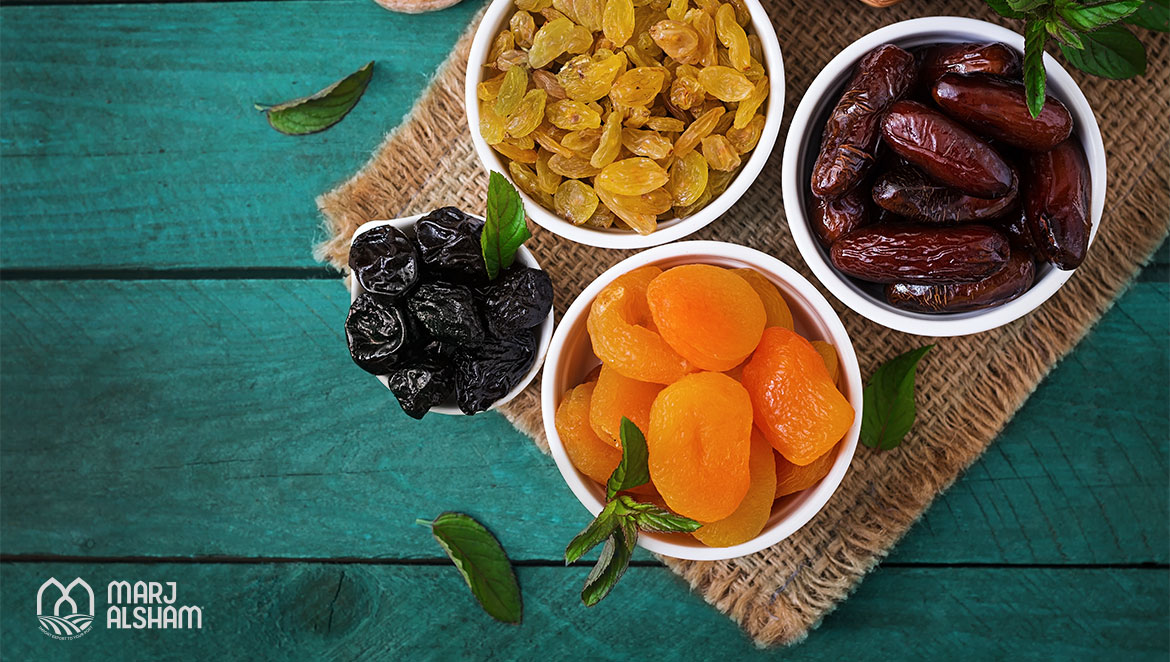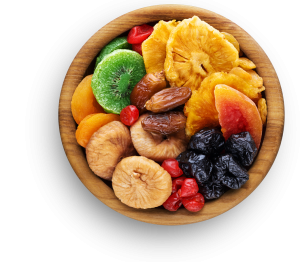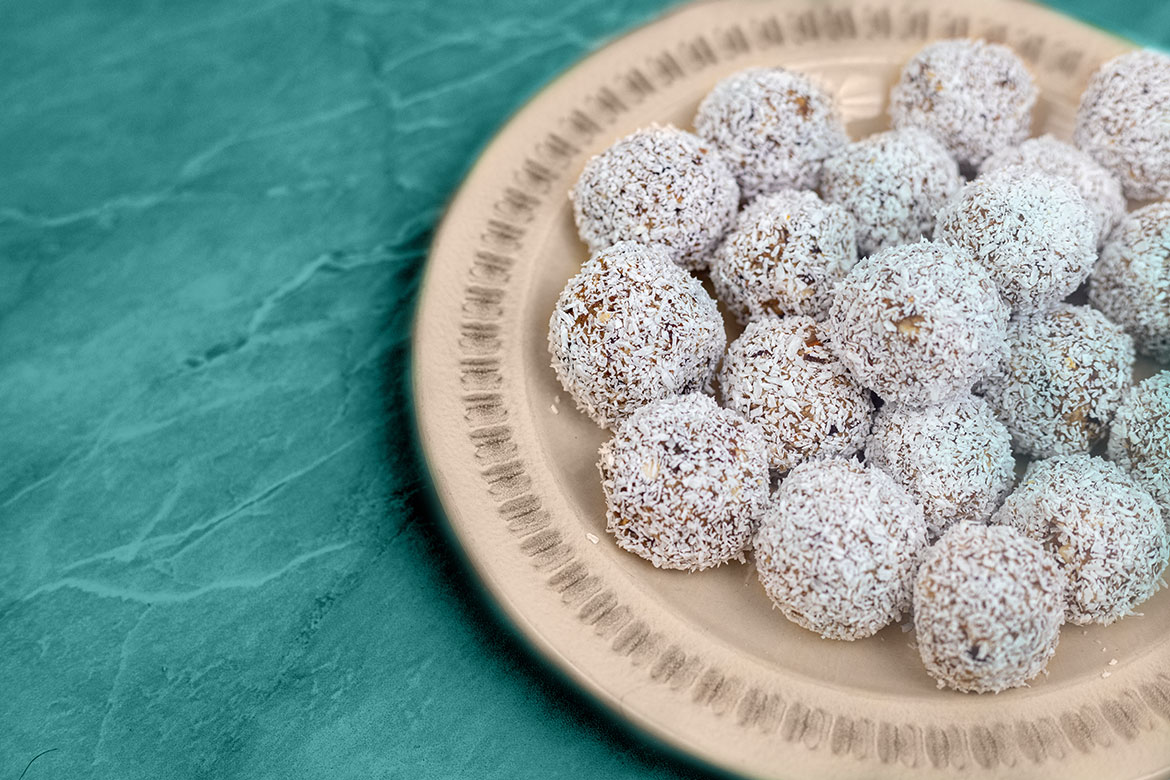Is dried fruit as nutritious as fresh, and how much counts towards your five-a-day? We asked Registered Nutritionist Nicola Shubrook to answer these questions and explain the nutritional differences.
What is dried fruit?
With almost all of its water content removed, dried fruit is as its name suggests is the dried version of different types of fruit. Raisins are the most common as well as dates, prunes, and apricots.
Discover our full range of health benefits guides and check out some of our delicious dried fruit recipes from our dried fruit energy nuggets to our spiced chicken and apricot pastilla.
Nutritional benefits of dried fruit
- 82Kcal / 348KJ
- 0.6g protein
- 20.8g carbs
- 20.8g sugars
- 306 mg potassium
- 0.8g fibre
A 30g portion of dried fruit counts as one of your five-a-day – this is roughly equivalent to 80g of fresh fruit. Discover more in our five-a-day infographic.
Top 5 health benefits of dried fruit
1. Source of protective antioxidants
Dried fruits are rich in plant compounds with protective antioxidant properties, these include anthocyanins, catechins, and phenols. These compounds may be associated with health benefits such as improved blood flow and a lower risk of certain diseases, including heart disease, cancer and type 2 diabetes.
2. the Rich source of micronutrients
As dried fruit contains less water they are a more concentrated source of vitamins and minerals when compared to its fresh counterparts. Dried fruit is a shelf staple and their natural sweetness encourages consumption; these factors may help towards achieving the recommended 5-a-day portions of fruit and vegetables and to improved diet quality. However, it’s worth remembering that they are also significantly higher in calories per 100g.
3. Useful source of dietary fiber
Dried fruit contains roughly two to three times the amount of fiber than their fresh equivalent. Most of us don’t eat enough fiber which is important to support digestive function and to help slow down the rate of digestion and absorption. Greater fruit fibre intake is also associated with a lower risk of cardiovascular disease.
4. May support bone health
Studies suggest dried plums may benefit bone health, including slowing the bone loss experienced during mid-life. The high levels of bone-healthy nutrients like vitamin K and boron in dried fruits, like prunes, may be one explanation for these benefits.
5. May help with labor during pregnancy
Eating dried fruit, in the form of dates, during the last few weeks of pregnancy may help cervical dilation and reduce the need for induced labor.
Is dried fruit safe for everyone?
As dried fruit contains less water, the calorie content is much higher than fresh fruit – it’s worth keeping an eye on portion sizes if you’re trying to lose or maintain your weight. However, for those who need to gain weight or who have smaller appetites (such as the elderly), dried fruit may make a useful inclusion. That said, because dried fruit is naturally high in potassium and sugar, it is less suitable for those with kidney disease.
It’s also worth remembering that although the sugar in dried fruit is natural, it may still contribute to tooth decay. It’s best to eat dried fruit with meals or with protein-rich foods, such as yogurt or nuts, rather than snacking on it throughout the day.
Sulfur dioxide (E220) and other sulfites are often added to dried fruits to preserve their color, these can cause allergy symptoms in some people. Food labeling rules in the UK require pre-packed food to clearly label these additives.
If an allergic reaction is suspected, make an appointment with your GP or NHS allergy clinic to confirm the diagnosis.



